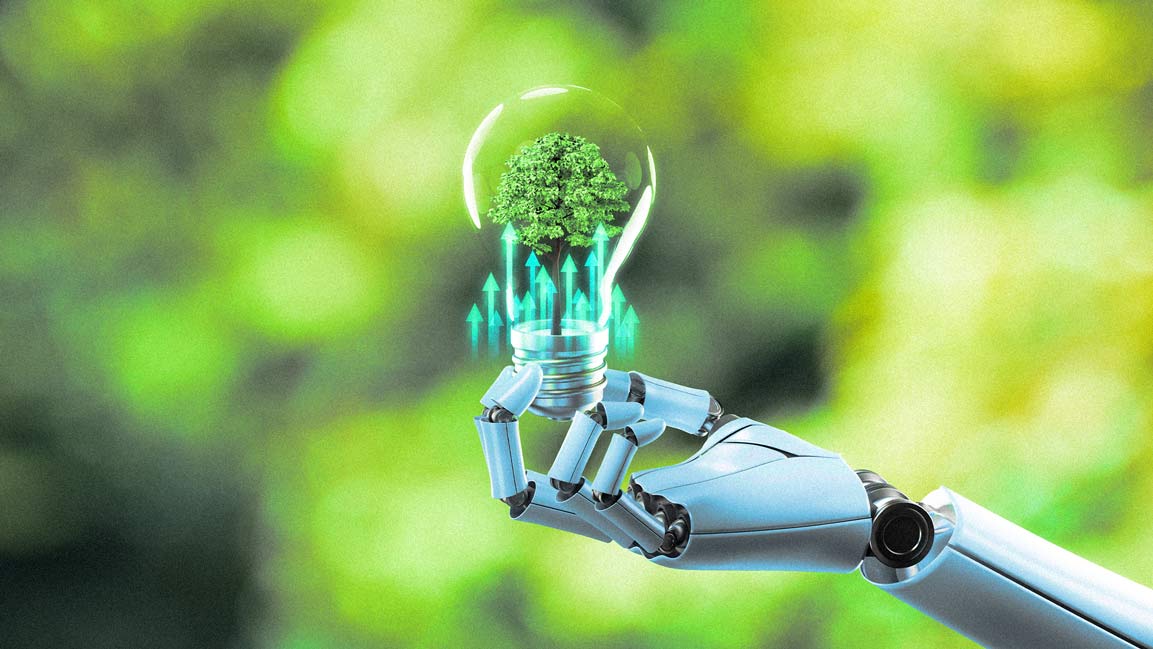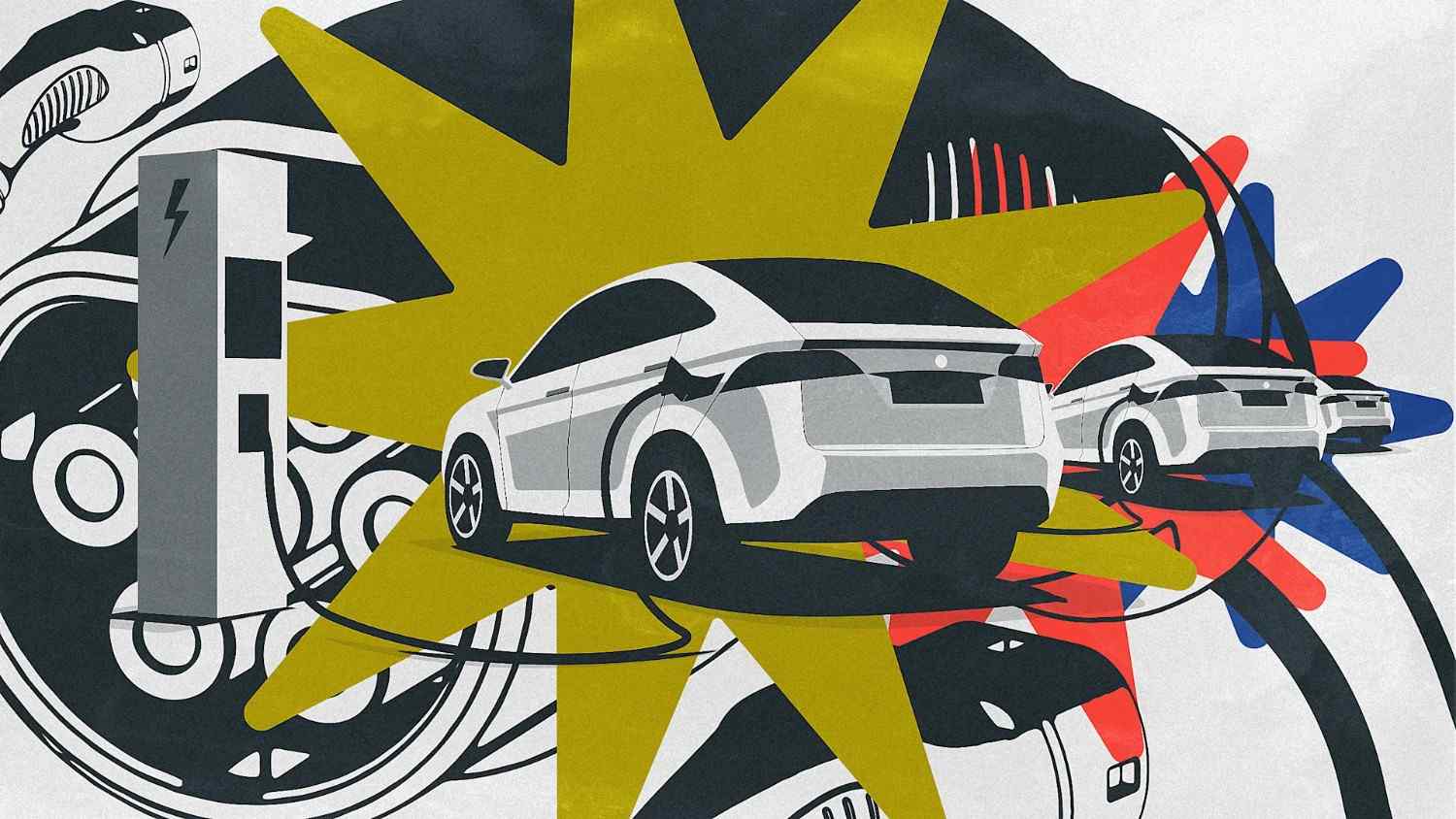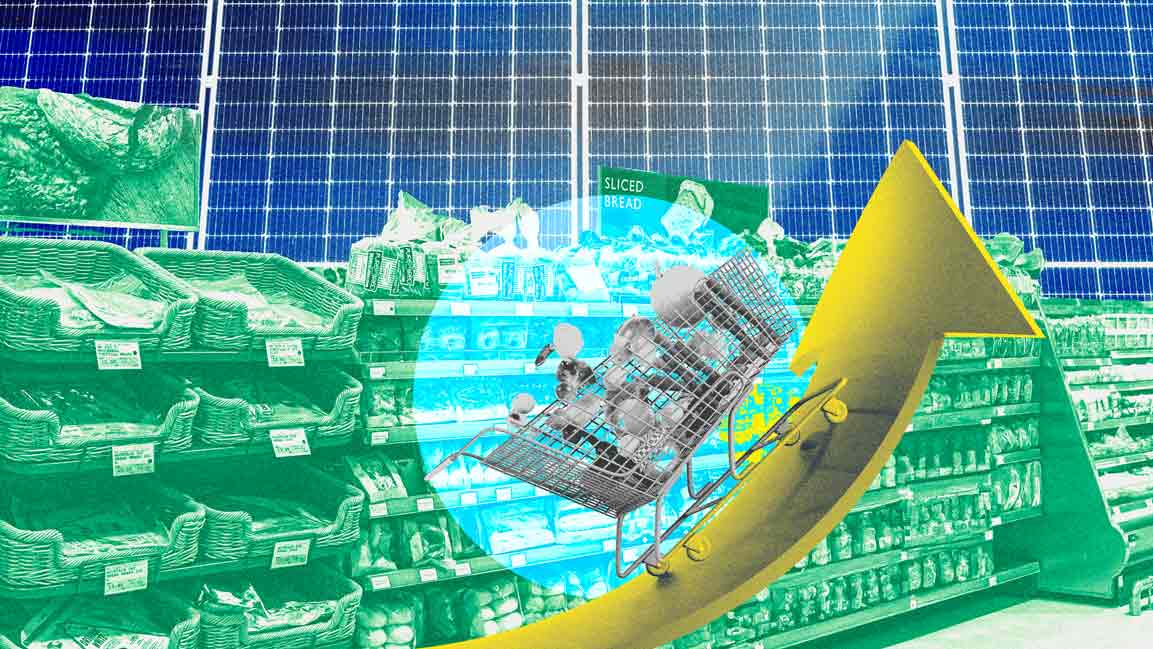- | 10:00 am
Can businesses in the Middle East balance AI’s energy demands with environmental goals?
As AI continues to evolve, its growing energy demands are raising concerns about sustainability

As AI (artificial intelligence) leaps into the future, it’s not just the robots getting sharper—our energy bills are rising, too. With complex models demanding ever-increasing amounts of power, AI’s appetite for energy is soaring. But as businesses navigate this path, they must find ways to balance sustainability while advancing toward a greener future, ensuring that innovation doesn’t come at the cost of the planet.
Eng. Yousif Al Ali, CEO of Etihad Water & Electricity (EtihadWE), discusses AI’s impact on energy infrastructure, lower tariffs’ role in supporting business growth, and the importance of collaboration and energy-efficient models in building a more resilient future.
THE RISING DEMAND
AI’s rising energy demand is driven by the increasing computational power required to train and operate advanced models, particularly in data-heavy sectors like machine learning and natural language processing. As AI adoption grows, the energy demands on data centers are expected to scale significantly.
Ali believes, “This is primarily due to the complexity of models, which inevitably leads to higher energy consumption.”
He adds, “At EtihadWE, we recognize the transformative potential of AI for global climate progress and are committed to enabling businesses to innovate without the hindrance of high costs.”
In May 2023, EtihadWE partnered with the Ministry of Industry and Advanced Technology and the Ministry of Energy and Infrastructure to launch a revised energy consumption tariff structure. This initiative led to significant price reductions for industrial and technology sector customers in the Northern Emirates, demonstrating how strategic collaborations can facilitate transformative impacts.
He adds that these lower tariffs have resulted in immediate cost savings for businesses, enhancing their profitability and cash flow and allowing them to reinvest and capitalize on new opportunities.
“Lower energy tariffs for AI businesses and heavy energy-use sectors provide an opportunity to reinvest the money saved and expand,” says Ali. But, reduced energy tariffs provide more than monetary gain. They support economic diversification, reinforce the UAE’s sustainability commitment, and catalyze innovation.
Tariff reductions can be a lifeline to innovation, technology, and expansion, creating potential for industry hubs and moving the UAE closer to achieving its national ambition of net zero by 2050.
AI AND ENERGY INFRASTRUCTURE
EtihadWE is working to make AI a crucial part of building a resilient and innovative economy in the UAE. This includes using smart grids and integrating renewable energy, which are important for improving energy flexibility and resilience.
“We leverage AI to optimize energy management, predict demand, and improve operational efficiencies. These steps are vital for reducing emissions and ensuring a reliable power supply, which supports the UAE’s vision for a decarbonized future.”
Also, tailored energy tariffs for energy-intensive sectors such as AI-driven data centers incentivize sustainable growth and support the broader adoption of AI technologies.
He believes AI’s growth challenges energy providers to rethink traditional power supply strategies.
“As AI applications scale, we must diversify our energy resources—incorporating more renewables like solar and wind—while enhancing grid resilience. Ensuring a steady, sustainable energy supply to meet AI’s power demands is critical for keeping up with technological progress and aligning with broader sustainability targets.”
PRIORITIZING ENERGY EFFICIENCY
While AI holds transformative potential, its sustainability hinges on prioritizing energy-efficient models. Advancements in hardware, cooling technologies, and software algorithms that reduce the computational load can drastically reduce the energy footprint of AI applications.
Ali says, “At EtihadWE, we recognize that for AI to drive sustainable innovation, it must evolve in parallel with energy-saving technologies. This focus on energy efficiency will allow AI and energy sectors to grow in a way that aligns with environmental goals.”
On the other hand, smart load management can also optimize the use of computational energy by performing complex tasks when demand is low and less costly renewable energy sources are more available.
The UAE has also strategically positioned itself as a global leader in AI innovation and technological growth. This is bolstered by public and private sector commitment and collaboration to address the significant demands of this rapidly growing industry.
Ali believes energy providers are critical in using all available resources to drive the UAE’s economic and sustainability growth. He adds, “By collaborating with the government—as we have to bring a revised energy consumption tariff structure to life—and key stakeholders, we can extend our reach and accelerate the energy transition.”
DATA TRANSPARENCY
Tracking AI’s energy use is essential for accountability and sustainability.
Ali believes that by systematically collecting data on AI applications’ energy consumption, we can identify inefficiencies and implement targeted measures to reduce their environmental impact.
This transparency will allow energy providers and AI developers to collaborate on creating optimized systems that consume less energy while maintaining high performance. Implementing smart monitoring and control for energy management of AI systems will also help track energy use and ensure the system operates efficiently and sustainably.
He adds, “EtihadWE strongly supports efforts to track and reduce AI’s carbon footprint, contributing to a more sustainable digital economy.







































